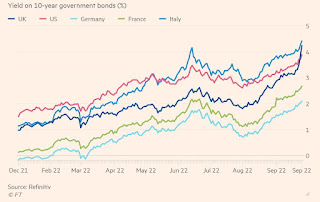To save democracy
Boris Johnson won the Brexit campaign and a general election not because he knew how to govern, but because he knew how to entertain. If the present government fails, will the successor be a better government or a populist entertainment? My bet is on the latter, with possibly devastating long-term results, as is now the case in the US. It may already be too late. But we should try to avert this outcome. Martin Wolf 17 February 2025 https://www.ft.com/content/698778ba-fc0a-422b-82ee-b5be22a4eee1 In defence of the state A complex society is best served by a competent, professional and neutral public service In an important series of articles, Valuing the Deep State, https://www.persuasion.community/p/valuing-the-deep-state-series Stanford’s Francis Fukuyama examines why the evisceration of the state will prove so destructive. Fukuyama has devoted much of the past two decades to explaining that “a high-capacity, professional, and impersonal state is critical to the ...



